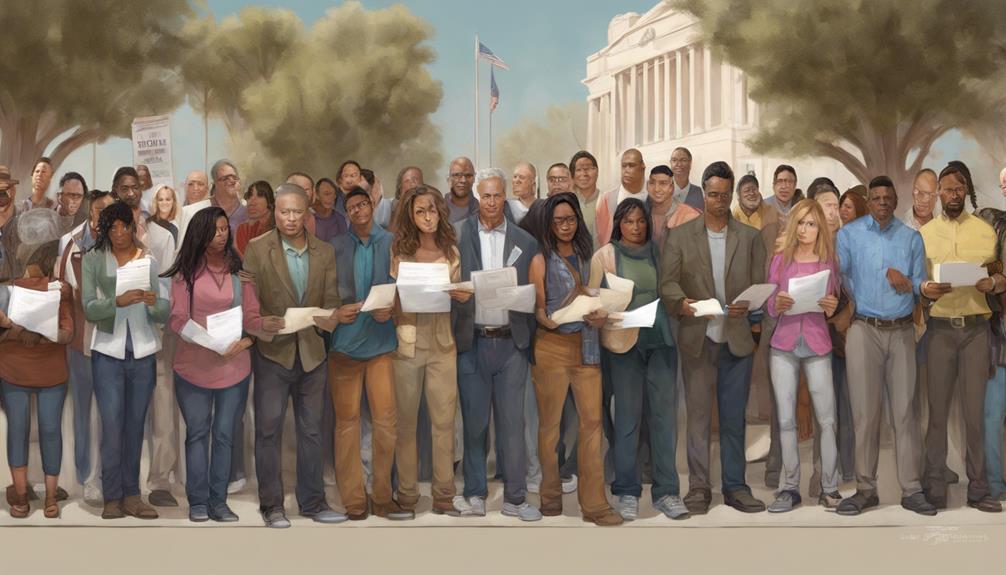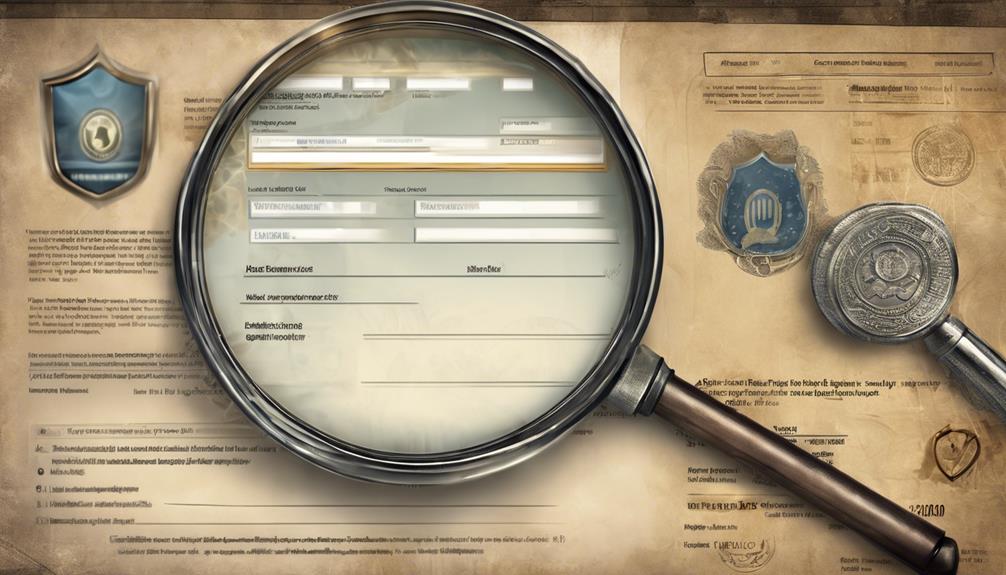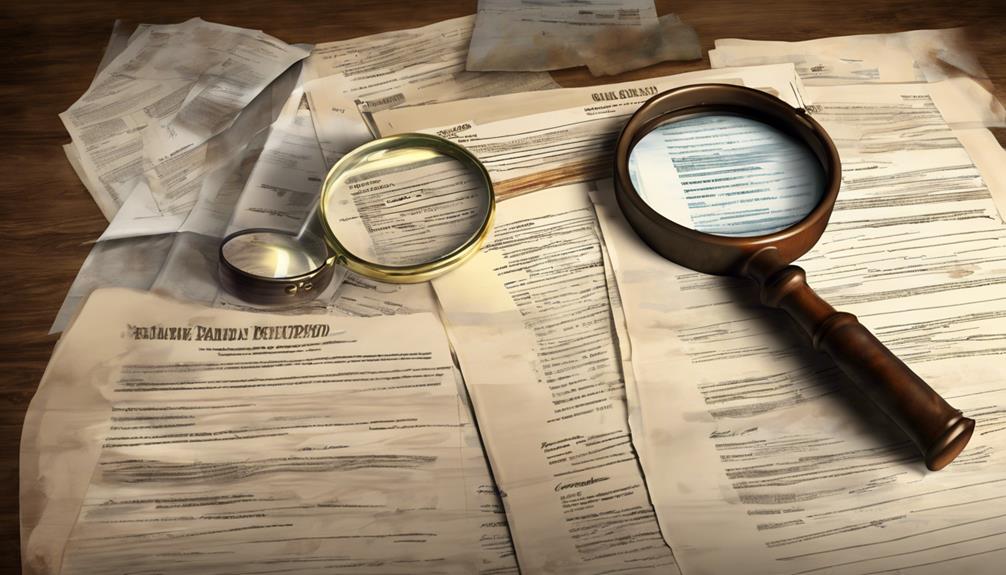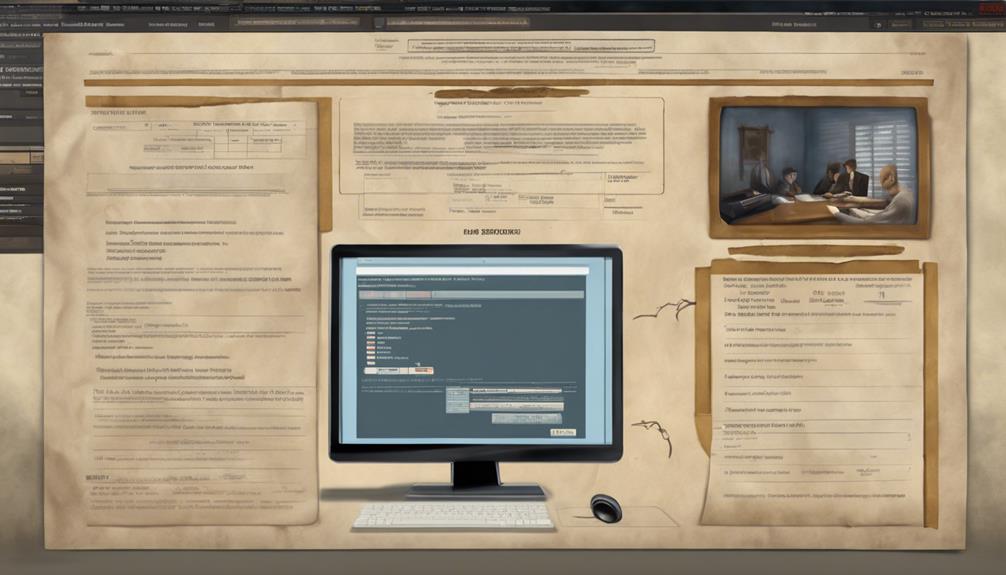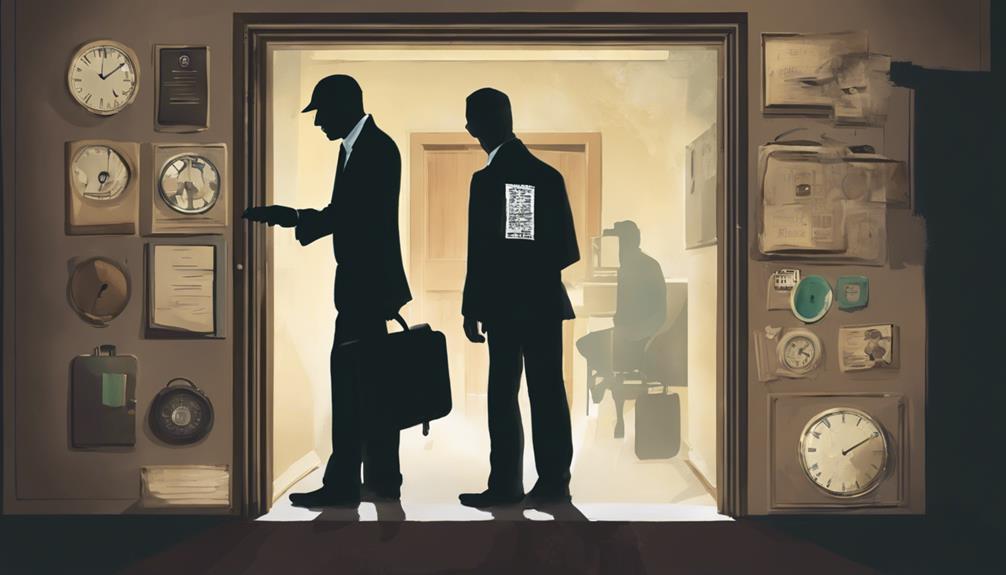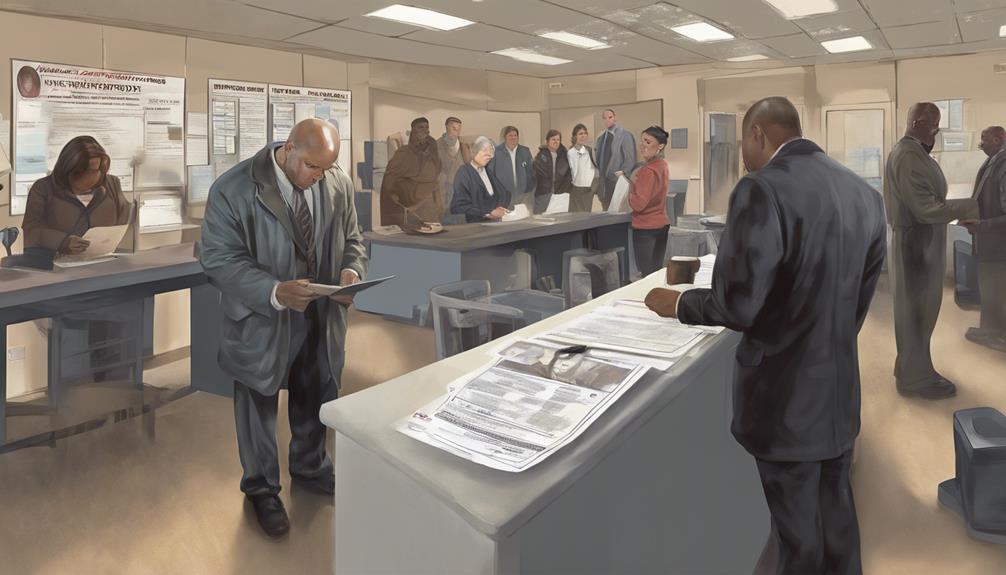Protection orders, or restraining orders, generally do not appear in basic background checks. However, more thorough screenings could reveal these civil court mandates, offering insight into an individual's legal past and any court-ordered protections. It's important for individuals to be aware that certain screenings can expose this information, potentially impacting various aspects of their lives.
Key Takeaways
- Protective orders are not typically included in standard background checks.
- Thorough background checks may reveal civil court records, including protective orders.
- Employers and landlords may not always be aware of protective orders through background checks.
- Restraining orders may not appear on standard criminal background checks.
- Court records should be searched for a complete picture of protection or restraining orders.
Protective Orders Vs. Background Checks

When comparing protective orders to background checks, it's fundamental to understand their distinct purposes and scopes. Protective orders, also known as restraining orders, are civil court documents designed to protect individuals from harm in cases involving domestic violence.
On the other hand, background checks primarily focus on an individual's criminal records to assess potential risks in various settings such as employment or housing. Background checks typically don't include protective orders as they're civil matters and not criminal offenses.
While more thorough background checks may uncover civil court records, including protective orders, it isn't a standard practice to include them. This means that landlords and employers who rely on background checks may not always be aware of the existence of protective orders against an individual.
Understanding this difference is vital in comprehending the visibility of protective orders in background checks. While criminal records are more commonly scrutinized, civil court records, such as protective orders, may not always be readily apparent in these checks.
Obtaining a Protective Order in Texas
To obtain a protective order in Texas, individuals must provide proof of family violence. Evidence such as photos, medical records, and witnesses is recommended when applying for a protective order.
It's essential to apply immediately after an incident and keep records of any further incidents. Proof of abuse is necessary, especially in cases involving stalking, sexual assault, or human trafficking when seeking a protective order in Texas.
These protective orders can be either temporary or permanent and are enforced by law enforcement agencies to guarantee the safety and protection of the individual seeking the order. Law enforcement agencies play a significant role in enforcing these orders to prevent any further harm or violence.
Hence, individuals must gather sufficient evidence to support their claims of family violence when seeking a protective order in Texas.
Impact of Protection Orders on Employment

Protection orders can significantly influence an individual's job prospects, particularly when they involve restrictions on contact or proximity to the protected party. When employers conduct background checks, protective or restraining orders may appear, potentially affecting the candidate's employment opportunities.
The presence of a protection order on a criminal record could lead to limitations in securing certain job roles, especially those that require close interactions or involve security-sensitive responsibilities. Industries like law enforcement or childcare may pay particular attention to such orders during the hiring process.
It is vital for individuals with protection orders to recognize the potential impact on their employment and seek legal guidance if necessary. Understanding how these restrictions can influence job prospects is essential for making informed decisions and taking appropriate steps to address any concerns that may arise during the hiring process.
Visibility of Restraining Orders on Checks
Restraining orders typically don't appear on standard criminal background checks but may be accessible through state or county court records. While criminal background checks primarily focus on an individual's criminal records, including convictions and arrests, restraining orders issued in civil court may not always be captured in these checks.
However, more thorough background investigations that explore court records could potentially reveal the presence of active or expired restraining orders in an individual's history.
Some states permit individuals to expunge records of past restraining orders under specific circumstances, further complicating the visibility of such orders on background checks. State laws vary regarding the disclosure of restraining orders on background checks, with some jurisdictions treating them as public records accessible to those conducting thorough screenings.
Temporary or permanent restraining orders may appear in court records, depending on the jurisdiction and the nature of the order issued. Hence, for a complete picture, it's essential to conduct a detailed background check that includes a search of court records.
Legal Assistance for Fighting Orders

Professional legal guidance from an attorney specializing in protective orders is essential for effectively contesting or modifying such orders. Attorneys can provide valuable assistance in understanding the intricacies of protective order cases, offering insights into legal strategies, and representing individuals during court hearings. These legal professionals play a critical role in helping individuals navigate the complexities of protective or restraining orders, ensuring that their rights are protected. They can also assist in exploring options to have restraining orders expunged from criminal records, providing a pathway towards resolving such legal matters.
| Legal Assistance Benefits | Description |
|---|---|
| Expert Legal Advice | Attorneys offer specialized guidance on protective order cases. |
| Representation in Court Hearings | Legal professionals can represent individuals during court proceedings. |
| Understanding Legal Strategies | Lawyers help clients comprehend their rights and develop effective strategies. |
| Expunging Restraining Orders | Assistance in exploring options to have restraining orders removed from records. |
| Navigating Protective Order Cases | Support in navigating the complexities of protective or restraining orders. |
Frequently Asked Questions
Will a Protective Order Show on a Background Check in Texas?
In Texas, a protective order may or may not appear on a background check. The visibility of such orders can vary depending on the type of check conducted and the level of detail included.
Does an Order of Protection Show up on a Background Check in Illinois?
In Illinois, an order of protection can show up on background checks. Employers and landlords may take these orders into consideration. It is important to disclose any protection orders when required to prevent legal consequences and future obstacles.
Does a Protective Order Show up on a Background Check in Virginia?
In Virginia, protective orders may surface during detailed background screenings. Employers conducting thorough checks might discover these records. Being forthright about a protective order can prevent complications in background investigations, making transparency critical.
How Long Does a Restraining Order Stay on Your Record in California?
A restraining order can remain on one's record in California for up to 5 years. The duration varies based on the type and circumstances, with potential renewals or extensions. Violating such orders can lead to serious legal ramifications.
How Do Protection Order Violations Impact Background Checks?
Protection order violations can have serious implications on background checks. Employers often conduct thorough screenings, and any history of violations on background checks can raise red flags. This can affect job opportunities and potential employment. It’s important to understand the consequences of violating protection orders.
Conclusion
To wrap up, protection orders can appear on background checks and have the potential to influence employment opportunities.
But, does this imply individuals should abandon their efforts to safeguard their safety and well-being?
It's crucial to keep in mind that legal aid is accessible for those seeking to dispute or challenge protection orders that may be unfair or unnecessary.
Don't allow a protection order to shape your future – seek the assistance necessary to safeguard your rights.

